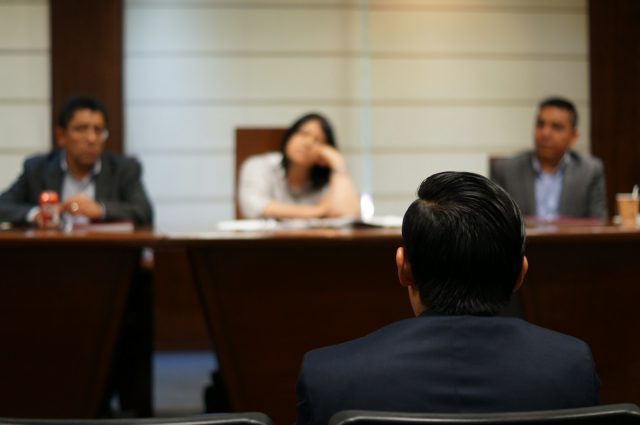
Expert testimony has always been a mainstay of litigation, but it’s increasingly being used in the context of software and technology. These days, algorithms, AI, and other advanced technologies are frequently under scrutiny.
How is expert testimony evolving in this new technological landscape? And how can you wield it to your advantage?
The Rise of Algorithmic Evidence
Algorithms are, at their core, sets of instructions that process data and produce outcomes. In legal contexts, they can analyze massive datasets faster than any human expert could. This has made them particularly useful in areas such as financial fraud detection, digital forensics, predictive policing, and e-discovery.
For example, AI can sift through millions of emails to identify relevant documents, detect anomalies in accounting records, or even reconstruct vehicle accident scenarios from sensor data. In civil cases, machine learning models are being used to evaluate risk, assess damages, and predict outcomes based on prior case data. As courts increasingly encounter evidence and arguments shaped by artificial intelligence, the ability to scrutinize digital content is becoming more critical. An ai detector offers one method for judges and attorneys to assess whether material was generated by a machine or created by a person.
As these tools become more prevalent, attorneys increasingly rely on experts who can explain how algorithms function — and whether their results can be trusted. This intersection of law and technology represents one of the most significant shifts in expert testimony since the rise of digital evidence.
The New Role of the Algorithmic Expert Witness
Traditional expert witnesses testify about fields such as medicine, engineering, or finance. Today, a growing number of experts specialize in algorithmic systems themselves. These professionals (often data scientists, AI researchers, or computer engineers) help courts understand how an algorithm was trained, what data it relied on, and how its decisions were generated.
For example, if a company uses an AI-driven system to approve or deny loans, and a lawsuit challenges the fairness of those decisions, an algorithmic expert might analyze whether the model introduced bias or violated regulatory standards. Similarly, in criminal cases, experts may evaluate whether predictive policing tools or facial recognition algorithms produced reliable results.
These experts don’t just interpret technical systems; they translate complex computational logic into language that judges and juries can understand. Their testimony helps bridge the gap between cutting-edge technology and established legal principles.
Transparency and the “Black Box” Problem
One of the greatest challenges in using AI as evidence is transparency. Many algorithms, particularly those based on deep learning, operate as “black boxes,” producing outcomes that even their creators can’t fully explain.
This lack of interpretability poses significant legal questions. If an algorithm’s decision affects someone’s liberty, property, or reputation, how can that decision be challenged or verified in court? Without transparency, it becomes difficult to assess whether a model’s output is reliable, unbiased, or even reproducible.
Expert witnesses play a crucial role in addressing this issue. Their job often involves testing or auditing algorithms to determine how they behave under different conditions. By analyzing training data, input variables, and statistical performance, experts can provide the court with meaningful insight into whether an AI system operates as claimed.
The challenge, however, is that not all proprietary algorithms can be fully disclosed due to trade secret protections. Striking a balance between intellectual property rights and due process remains one of the most pressing ethical dilemmas in this space.
Ethical Implications of Algorithmic Testimony
AI’s integration into legal proceedings also raises questions about accountability. Who is responsible if an algorithm produces an incorrect or biased result; is it the developer, the user, or the expert who interprets it?
Experts must navigate these ethical waters carefully. Their duty, as with all expert witnesses, is to the truth, not to the party that retained them. That means acknowledging uncertainty, disclosing assumptions, and avoiding overstatement of an algorithm’s capabilities.
Ethical expert testimony requires transparency about data limitations, potential bias, and the interpretive choices made during analysis. Courts increasingly value experts who demonstrate not only technical knowledge but also intellectual honesty.
The Future of Expert Testimony in the AI Era
As algorithms become more pervasive, expert witnesses will play an increasingly central role in determining how the legal system interprets and regulates them. Courts will rely on these specialists not just to explain technical details but to help shape the standards of admissibility, accountability, and fairness that govern algorithmic evidence. In the coming years, we’re likely to see new frameworks for evaluating AI testimony — ones that balance innovation with transparency and human oversight.
Adapting to a New Technological World
Artificial intelligence and algorithms are reshaping how courts evaluate evidence and expert testimony. They offer powerful new tools for discovery and analysis, but also introduce risks of opacity and bias. Expert witnesses stand at the center of this transformation. Their role is to ensure that as technology grows more complex, the law remains clear, fair, and grounded in verifiable truth. As AI continues to redefine what’s possible in the courtroom, one principle endures: technology may inform the law, but human judgment must still guide it.










